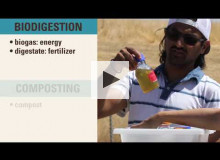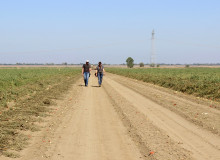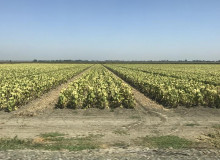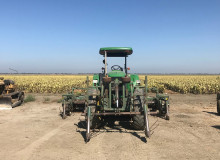davis
George Washington University
Next in Tackling Food Waste: GW's Ellen Wang asks us to look at our own food waste. We might think that the garbage bin is the end of the story when it comes to food you're not going to eat – but there's more to to it than that.
Stevenson University
Next in our series: Stevenson University's Quinn Luethy looks deeper into how we're going to feed our planet's growing population. Solutions include the development of crops that can withstand the challenges of climate change.
Planet Forward Senior Correspondent | Cornell University
Next in our Tackling Food Waste series: Any food discussion inevitably involves GMOs. Columbia University's Katherine Baker spoke with an organic farmer and plant pathologist/geneticist to find out more.
Planet Forward Correspondent | University of Nebraska-Lincoln
Next in our series: Photojournalist James Wooldridge takes a peek into the diversity of form among California's farms, which points out the intersection between art and science in agriculture.
Kansas State University
Sustainability and food used to be separate conversations. In the next story in the series, Kansas State's Olivia Bergmeier explores how sustainable ag is now a joint conversation — and both consumers and producers are talking together.
Kenyon College
Next in our Tackling Food Waste series: Kenyon College student farmer Dani Huffman looks at the pros and cons of traditional and organic farming - and the issue of sustainable agriculture. Turns out it isn't as black and white as it seems.
Eckerd College
In the next story in our Tackling Food Waste series, Eckerd College student Brigit Kenney looks at the broad connection between food production to actually getting that food on our plates. It's a much larger process than she expected to see.
Texas Tech University
Taking a look into making sustainable agriculture practices in California's Central Valley, it's obvious that farmers and seed suppliers have their work cut out for them.




